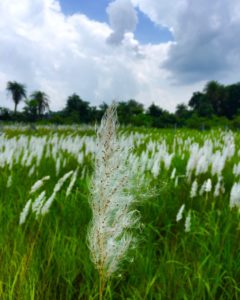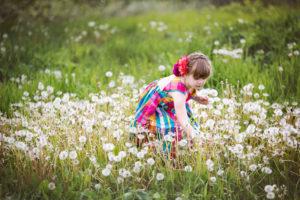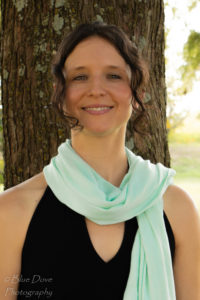“Though I do not believe a plant will spring up where no seed has been, I have great faith in a seed. Convince me you have a seed there, and I am prepared to expect wonders.”
— Thoreau
Hello! My name is Theresa, and I’m a physician assistant with Kestrel Wellness. It’s really great to connect with you here!
I read this quote recently in Jack Kornfield’s book, The Wise Heart, today, and it really resonated with me. I have personally been feeling the frustrations and dissatisfaction of not being able to live life in the way that I want to due to my physical limitations. As I work to restore my health, this quote brought relief and hope. It reminded me that no matter what is arising, I can consistently choose to plant seeds that serve my life in positive ways and that, with time, these seeds do grow into something wondrous.

Thich Nhat Hanh, a peace activist and monk, often uses the analogy of “weeding out the mind” and “planting good seeds”. Unfortunately, the weeds of our minds have developed over time due to so many varying influences such as genetics, culture, possibly trauma, illness, abuse, and the list goes on. We don’t have to blame ourselves for the weeds, but now with mindfulness, we can become aware of them, start pulling them, and plant new seeds.
My mom has a really nice mindfulness practice that she does when she’s weeding her garden. She imagines the weeds being unhelpful thoughts and mental patterns, and as she pulls them out, can see those thoughts being removed from her mind.
This is a beautiful analogy, and it reminds us that, in any moment, we can become aware of patterns that may not be serving us, i.e the weeds, and plant the thoughts and patterns that will serve us.
These helpful seeds can come in different varieties. Just as in a flower garden there are an array of colors and types of flowers, these helpful seeds of the mind can come in many forms. They may come in words such as positive affirmations, kind words to yourself, a pleasant song, or a mantra. They may come in the form of images. You may call to mind a religious or spiritual figure supporting you and offering you the care and attention you need in that moment, or you may recall a memory of a time in life where you did feel happy, content, and at ease. Or, they may be in the form of a felt sense in the body. The brain is wired throughout the body, so the words and images may bring about a felt sense that you can then allow yourself to rest in for a few minutes.
I have always found real-life examples to be helpful to see how this process may play out in the “real world”, and I can speak from my own life on this one. As I have mentioned in previous posts, depression has been a common theme in my life, and I have found the practices of loving-kindness and compassion have allowed me to relate to it with more perspective and care.

So, when the thoughts and feelings of despair arise, I can first become aware of these patterns. This is where pure mindfulness takes place. I can stay with the raw feelings for a bit and then work on “weeding the garden” for a few moments by turning away from it and planting and tending the seeds of compassion and self-care.
I have found some of the loving-kindness meditation phrases helpful such as “May I be free of suffering and the root of suffering” and “May I love this life no matter what”. I also use imagery to see myself held in the arms of Mother Earth or Mother Mary because, to me, these images evoke a sense of unconditional acceptance and safety.
So, it’s unrealistic to think that we won’t ever have weeds. They just tend to grow. We can, however, continuously turn our attention to planting the helpful seeds and tending to those instead of watering the weeds. With time, the weeds become more scarce and the garden becomes much more lush, colorful, and full of life—so it is with our own minds and hearts.
We, too, can “have great faith in a seed…and expect wonders”.
What are some ways that you “plant good seeds”?
Theresa Kulikowski-Gillespie is a physician assistant (PA) and mindfulness meditation teacher.
- Theresa has completed Chris Kresser’s ADAPT Level 1 Practitioner Training which provides key foundational functional medicine knowledge to assist with a wide range of health challenges.
- Dr. Rick Henriksen has mentored Theresa for two years and patients will continue to receive collaborative help with Kestrel Wellness.
- She has lived the life of high-level athletics and also the life of disability which allows her to offer some level of understanding and true compassion to those with similar experiences.
- She is a certified mindfulness meditation teacher and trained with Jack Kornfield and Tara Brach, both pioneers of mindfulness in the West. She intentionally brings this practice of presence and deep listening into each patient encounter with the hopes of each patient feeling fully heard and understood.

